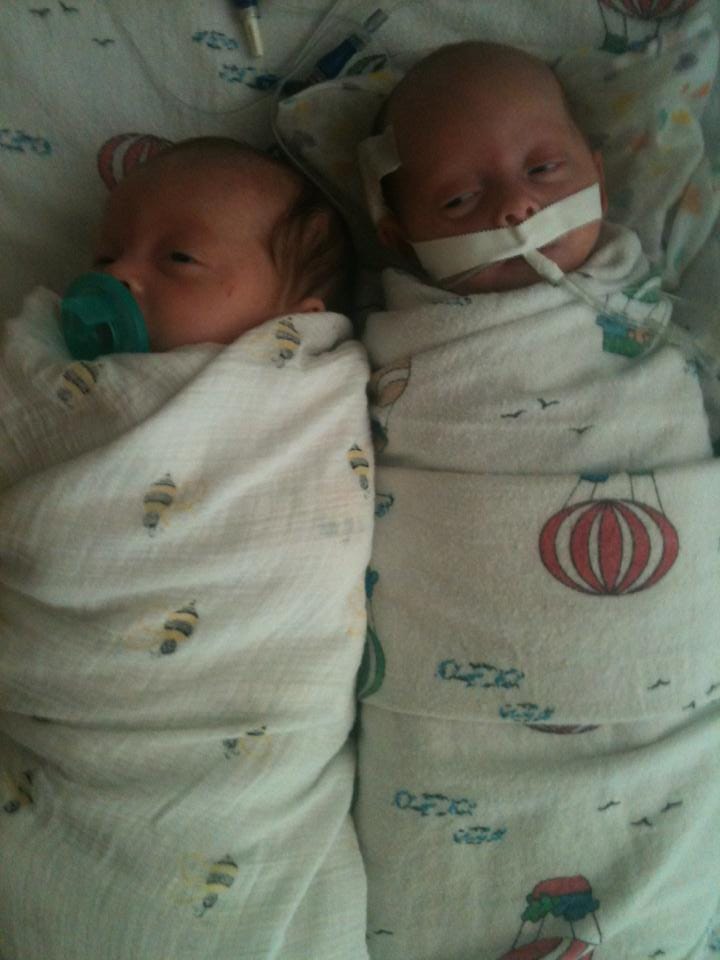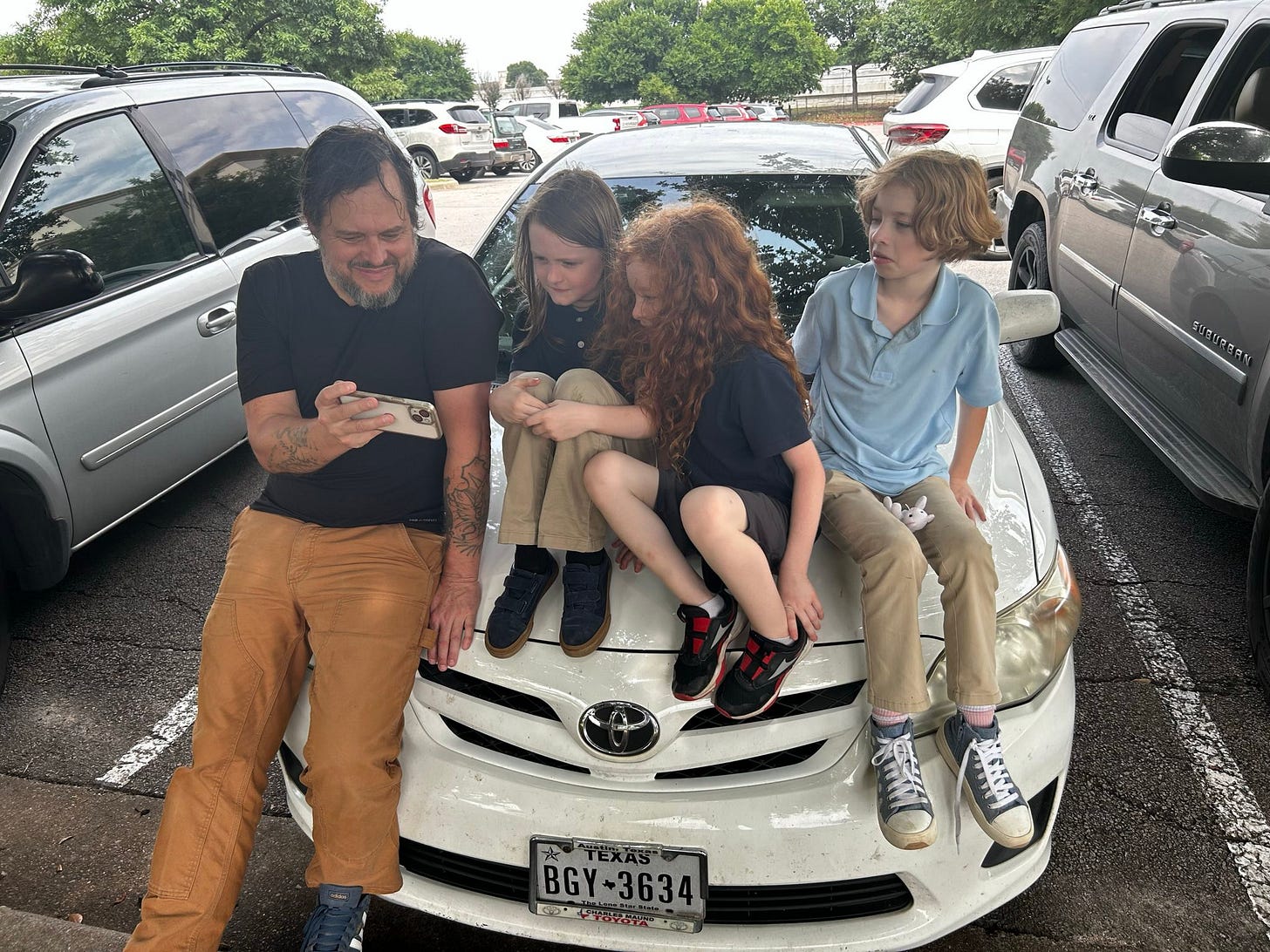I didn’t go straight down the cliff.
I saw the fawn, about 100 or so feet below; small, trembling, frozen on a ledge just twenty feet above the rocks at the bottom of the ravine, but following the logic of Occam’s razor would spook the fawn to its death if I climbed down to save it.
I’d encountered the twins, newly born, as I was preparing to turn on the spigot; they spooked me because they were literally underfoot.
One of the twin fawns hunkered down beneath the faucet, and the other tried to follow its mother as mom nervously retreated, but the fawn lost its footing, tumbled head over heels down the cliff, and stopped just short of a deadly fall.
It was scared, wounded, and alone.
Both fawns still wet from having just been born, and one was splayed out beneath the faucet, but the other one was 20 or more feet from potential death. If I’d gone directly down the cliff and into the ravine, I might’ve scared it into tumbling the rest of the way.
So instead, I walked the long way around; downstream, through thick brush, along a creek’s bed choked with twisted remnants of trees and tumbled piles of stones from the recent floods, where six or more feet of water roared through this narrow ravine.
I entered from below, which is ten times the distance, and I traveled it, slow and careful, but I needed that baby to know I wasn’t a predator, and I needed the mother to know I wasn’t there to take, so I took my time and walked quietly.
When I reached the fawn, I wrapped it in a towel; gently, without letting my skin touch its fur. I wanted it to return to its mother without confusion, without my scent.
I didn’t need to be remembered; the story isn’t about me, as you’ll soon discover.
Then I climbed straight back up the cliff, up the same path the fawn had fallen, and the mother deer watched me, nervously. She had seen me leave, and maybe she’d found the pile of sunflower seeds I left near her other baby, which was my way of saying, “I come in peace.”
When I returned her second child, I placed it gently beside the first. Then I walked away.
—
That’s how I solve problems, for what it’s worth.
I take the long way around. I think about how it feels to be approached. I protect not just the outcome, but the perception of the approach, because sometimes, the difference between healing and harm is just how you arrive.
And I know what it’s like to watch someone fade.
—
About 12 years ago, my 12 year old daughter Juliet died in my arms.

She and her sister were born healthy, despite a difficult pregnancy marked by the risks of something called “twin to twin transfusion,” where one twin can end up taking more than their share of nutrients and fluids.
But they made it. Two healthy, identical baby girls. We were overjoyed. Are you kidding? Identical twin daughters? What a treasure.
Then, at five weeks old, Juliet got sick. A late onset infection; group B strep; led to sepsis, pneumonia, and likely meningitis. It came fast, and it nearly killed her.
—
Her twin sister Nina was ok, but we’d lost a son named William just prior to the twins’ pregnancy. The doctors kept sending in social workers to help us “let nature take its course.” But I couldn’t. I wouldn’t.
I keep getting ahead of myself. This part of the story is hard.
I knew Juliet. I knew her soul, her rhythm, her sound, and one day, she stopped breathing.
She turned grey, limp.
Gone.
I called the emergency line. They put me on hold. I called again from a second phone, and this time, the nurse heard something in my voice; not rage, not panic. Just intent. She listened, refreshed her screen, asked a few questions, and then went very quiet.
“Sir,” she said. “Your daughter is experiencing catastrophic neurological failure. You need to get her to emergency care immediately.”
I didn’t wait for an ambulance. I put her in the car seat. I drove our Sienna minivan down NE Fremont like a madman, half way out of me seat at 70-75 miles an hour, screaming at Juliet to keep breathing. Every time I shouted her name, she’d rally; just a little. A flicker of pink. A ragged breath. And I’d scream again.
I shook her. I begged her. I drove standing half way onto my feet. I got her to the hospital.
And somehow, she lived.
Twelve years later, she texts me “goodnight!” every day, and until recently we shared a room; she slept on the top bunk, I on the bottom.

Her illness? Her recovery? She remembers none of it. I remember all of it.
—
I was erased from that story. People needed a cleaner narrative, and I get it: a miscarriage, a hard pregnancy, and postpartum depression is real. Sometimes grief needs a scapegoat. Sometimes that’s the man who kept driving. Sometimes it’s the one who screams without screaming.
But the story isn’t about me.
And the fawn story? That’s not about me either.
—
The story is about what happens when someone chooses to be of service, which is not the same as being a servant, and not for glory, nor for validation; but so that others have the space they need to mourn, to reunite, to speak truths, and maybe; if the world allows it; to heal.
It’s about the person who washes the dishes and clears the table and watches the door while the grandmothers cry and the daughters remember.

And it’s not even about that person, really. This story isn’t about the dishwasher.
This story is about the conversations that were able to occur because someone washed the dishes and cleared the table.
It’s about what happens when someone has the wisdom to orchestrate the stage for transformational conversation, and then disappears, allowing the magic to work without their interference.
And it’s not even about that person.
It’s about love.
Love as labor, without expectation of recognition.
Love as discretion.
Love as walking the long way around, just so the fawn doesn’t fall.
Just so the child can breathe.
So the child can be both heard, and listened to by those who are paying attention.
Just so the mothers and the fathers can speak without fear of being interrupted with the expectation that they stay busy instead of being gifted an opportunity to heal.
That’s it: that’s the story.
I’m trying to figure out how to orchestrate for others the healing opportunity that I was denied for myself, which is how I heal: I circle downstream and take the long way up.




